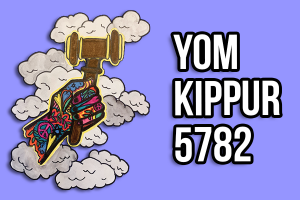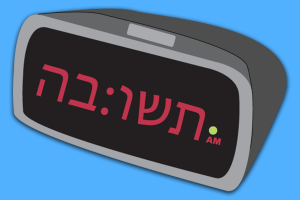Sukkot: Know what you have
GIFTS: Sukkot, which thanks God for blessings of all kinds, begins tonight at 6:34 p.m.
September 20, 2021
The High Holidays are a very busy time of year in Judaism, and by the time we get to Sukkot, we’ve already been through Rosh Hashana, Yom Kippur, and the Fast of Gedaliah. It’s a lot of extra time immersed in religion and ritual, and thus, the significance of Sukkot tends to be sidelined or unexamined. When asked what we’re celebrating, people have to consider it for a moment. What are we commemorating when we eat in the sukkah? What’s so important about it?
A common answer is that we are sitting in huts similar to those used in the desert during the exodus from Egypt. This suggests that the meaning of Sukkot, much like many other Jewish holidays, is about remembering and honoring what our ancestors went through. However, although there are notable similarities between traditional sukkot and the structures used in Exodus, they are stated to much more closely resemble the huts that farmers lived in during harvest season. Sukkot also takes place in mid-autumn, right when these huts would have been in use.
And the holiday’s main features, outside the huts themselves, are eating with family, studying under the stars, and connecting with the community. This is a rather sharp contrast — compared to the weight of Rosh Hashanah and Yom Kippur, Sukkot seems rather plain.
Rather than a heavily spiritual holiday stressing the importance of our ancestry, we follow up New Year’s and the Day of Judgement with what appears to be a simple harvest festival. We’re done clearing our records and starting over for a new year, and now we sit down and celebrate the harvest – what every human across history, from every walk of faith, has done in the pre-winter season.
It’s rather humbling in a way — at the end of the day, no matter how close to God any of us are, we are just like every other person on this planet. We want to be happy and well-fed, and we want to see our friends and family, and we want to celebrate with those we surround ourselves with.
Sukkot is a reminder that even after purifying ourselves to the best of our ability on Yom Kippur, even after working to clear our metaphorical moral records, we are only human. We’re given ample time to eat, to talk to each other, to rest, and to enjoy what God has given us — not just the harvest itself, but also our lives, our humanity. Because sometimes, even when we’re thanking God every single day, we forget to truly understand what God has given us.
This is what Sukkot is telling us. How are you supposed to thank someone when you don’t know what they’ve given you? God gave you a life, so take this time and live! That’s what this holiday means — it’s a vivid reminder of what we’re thankful for, and what the rest of the High Holidays meant. It’s a reminder that no matter what, we’re human, and this is what humans do; we sit around the table with our friends and we thank God for another year of food and we eat it.

















